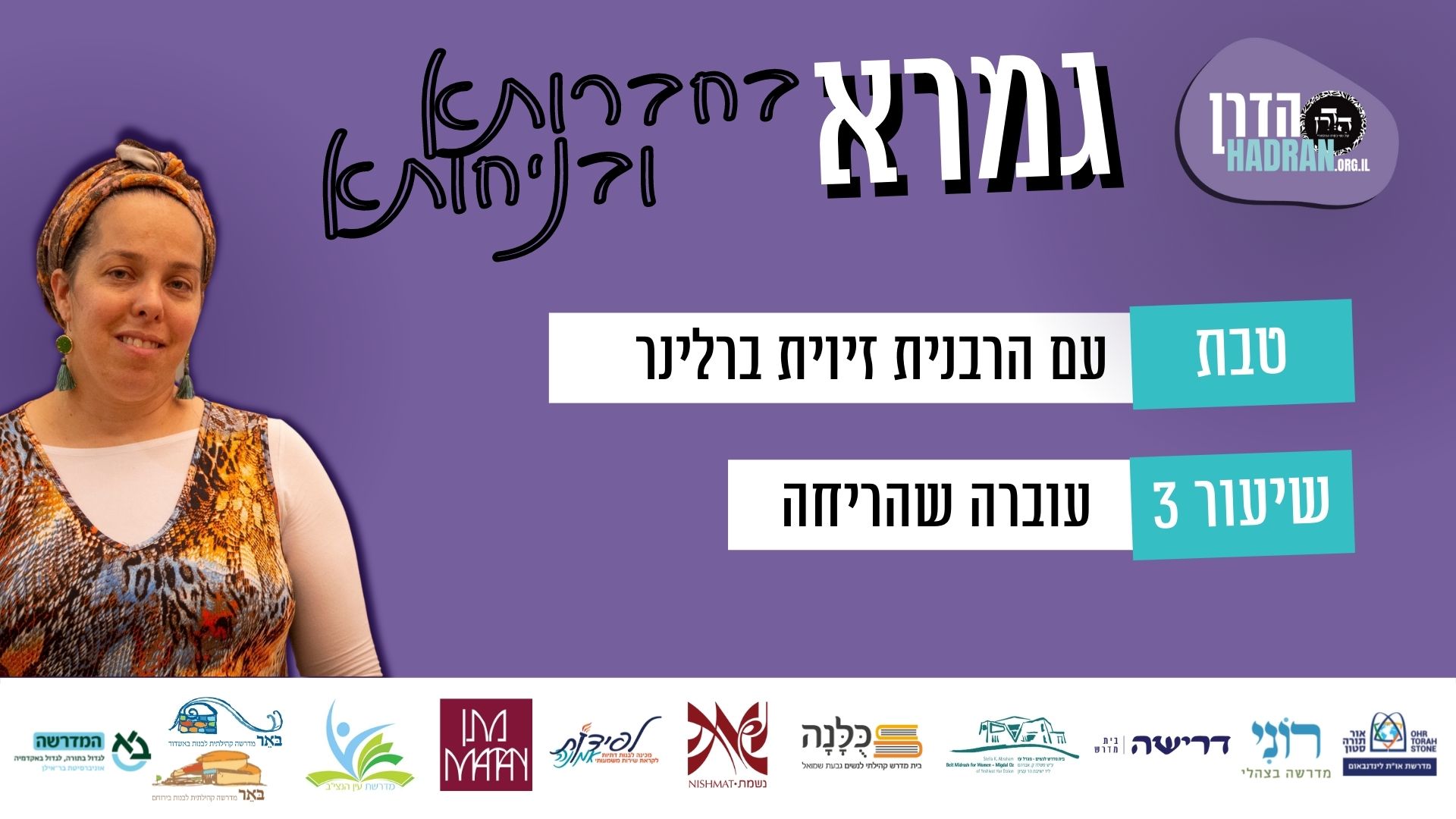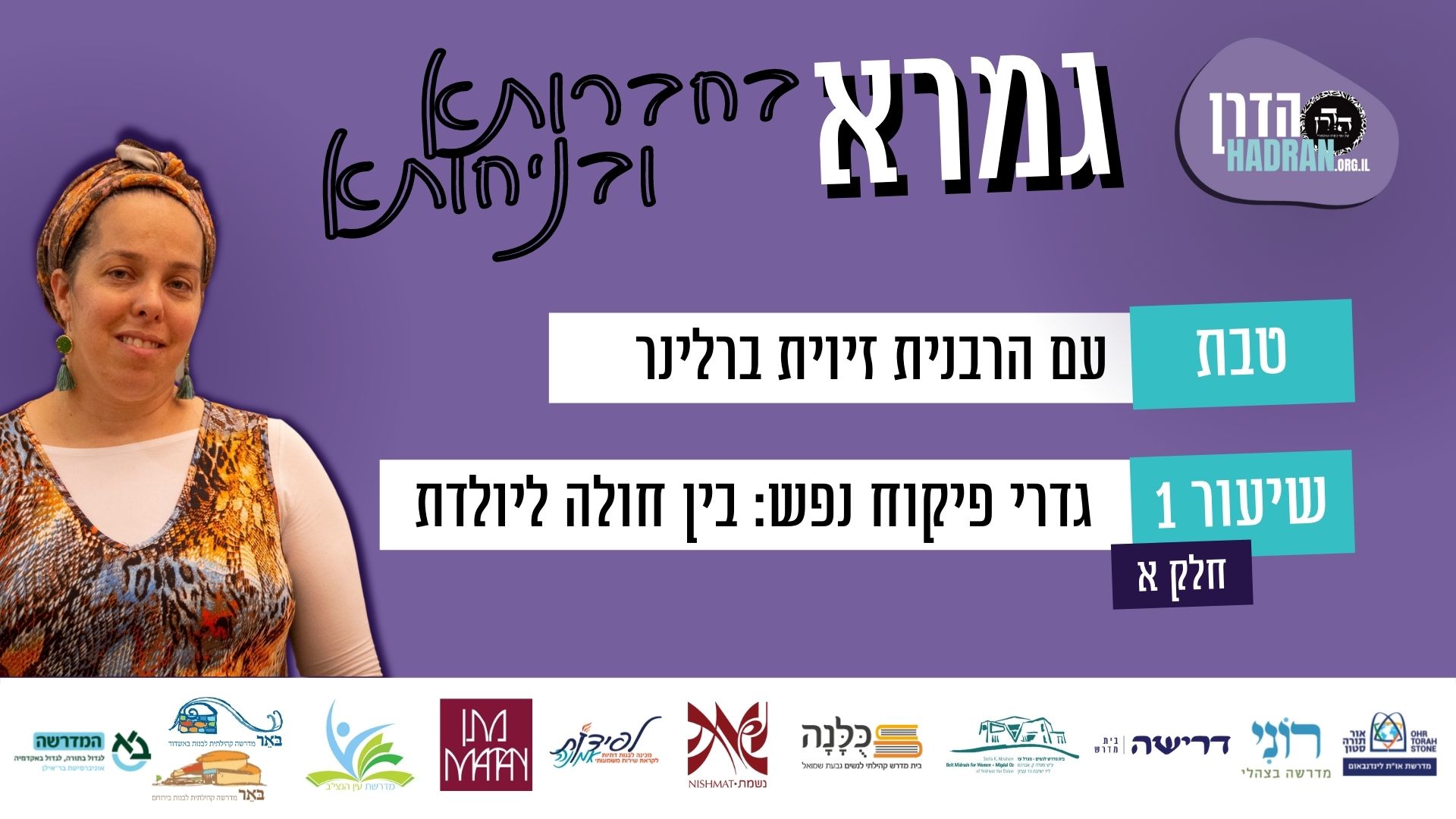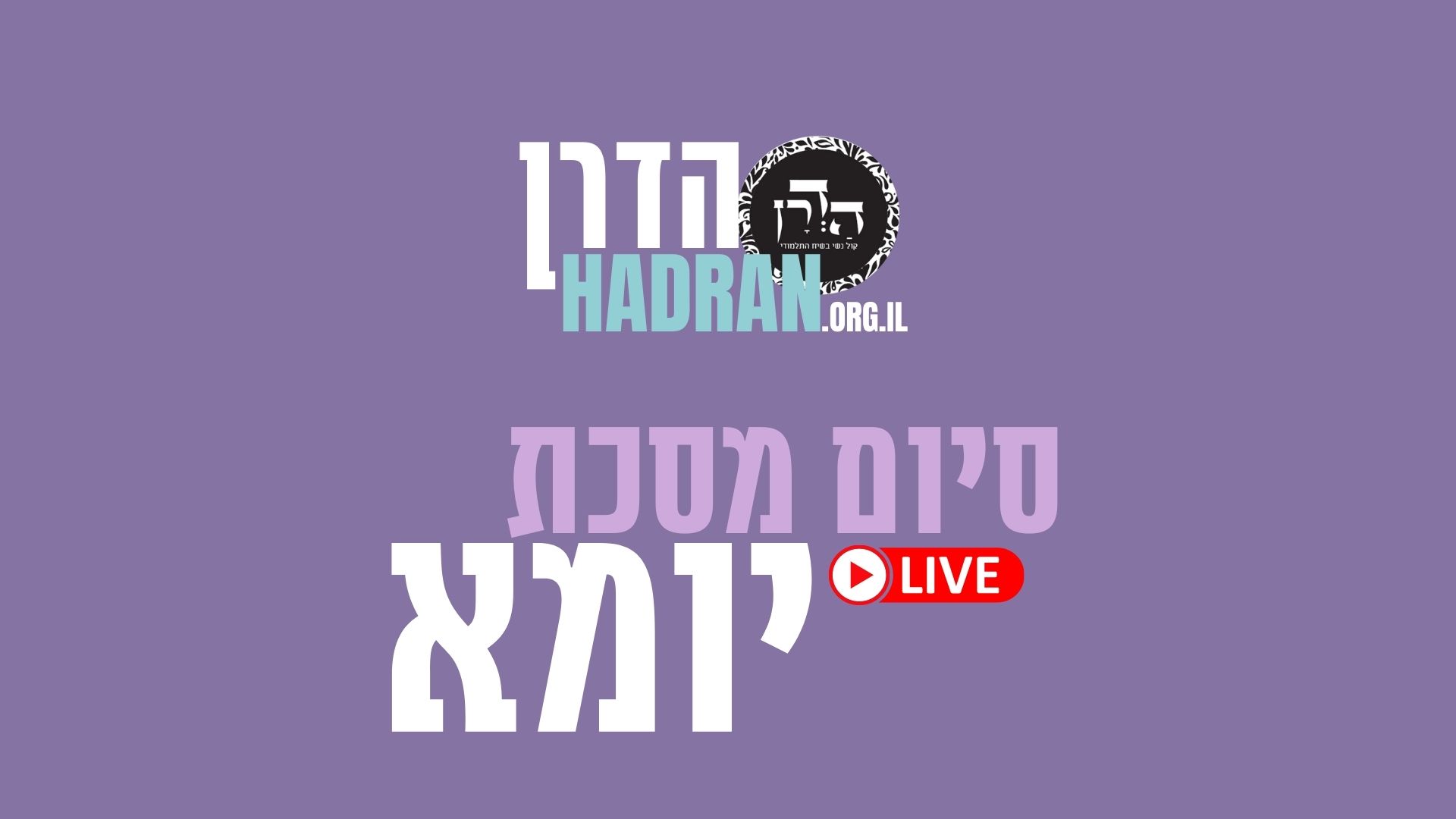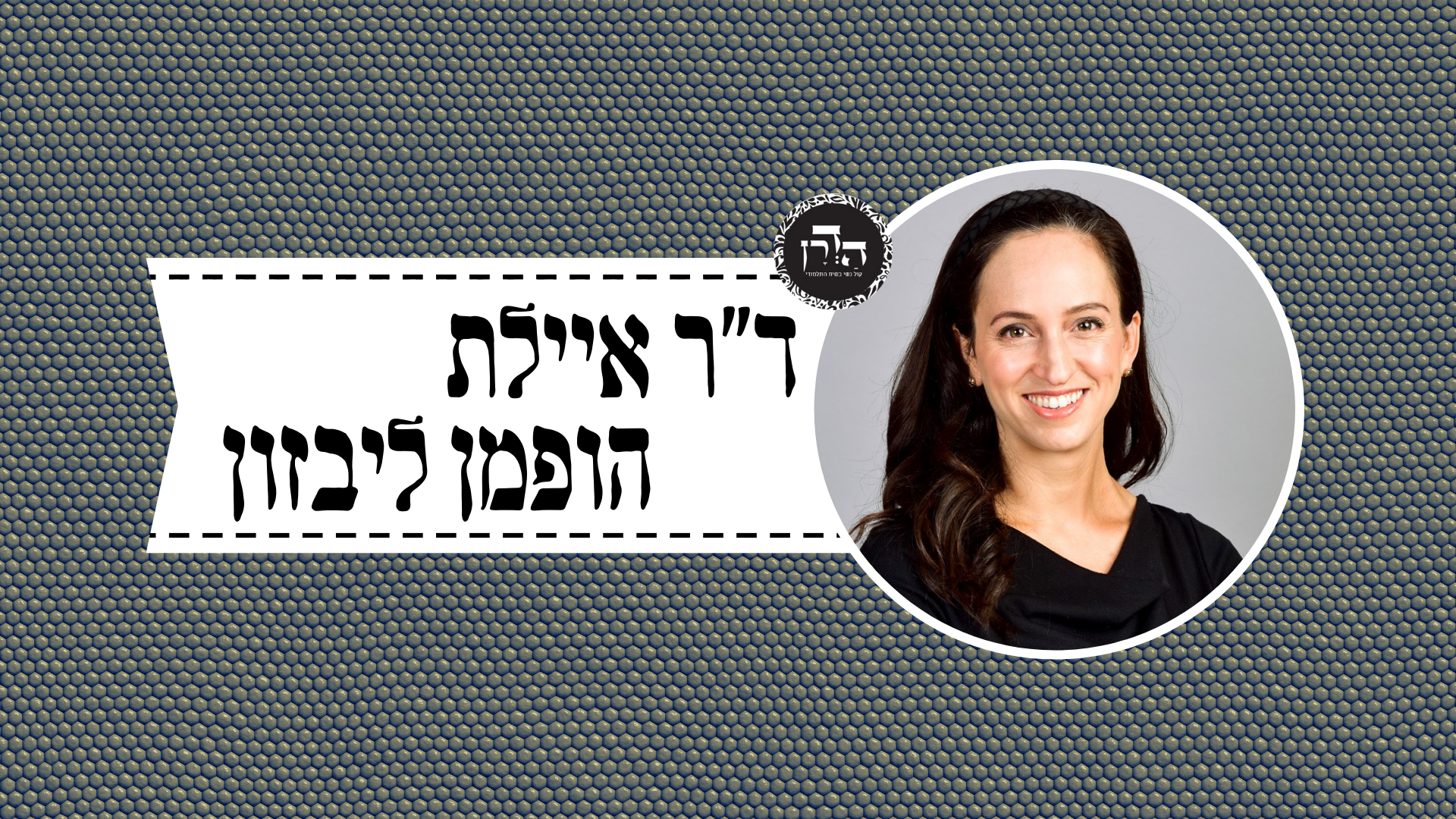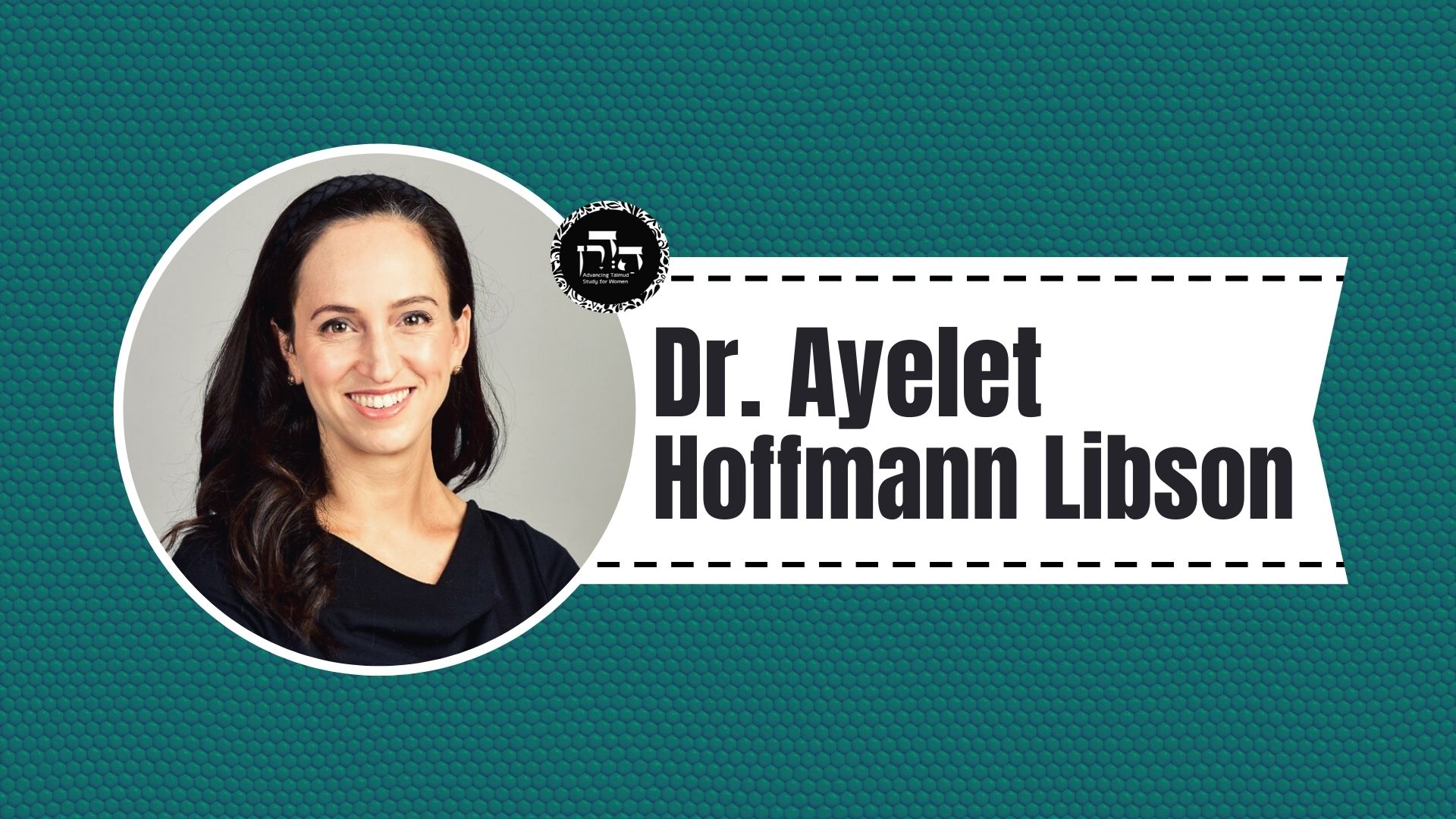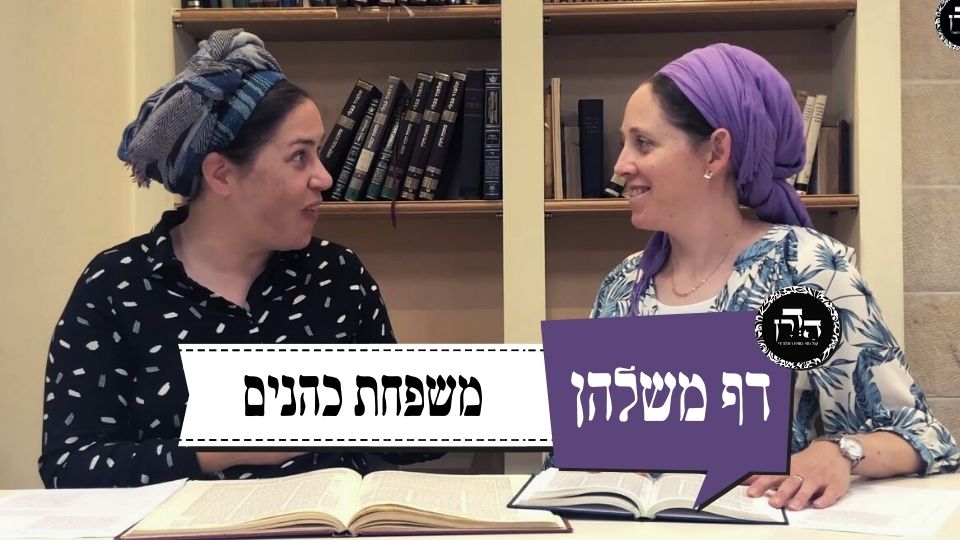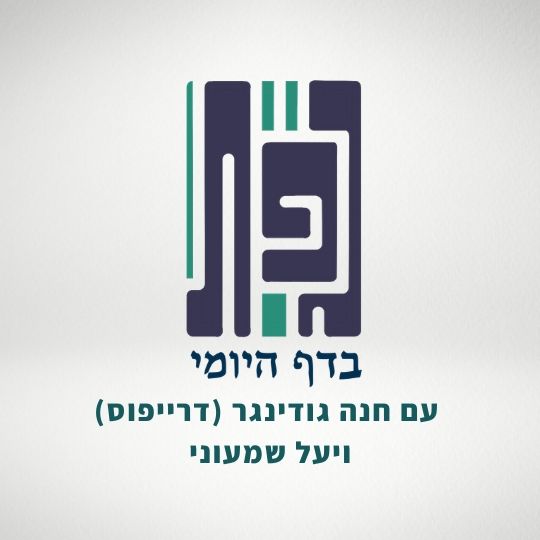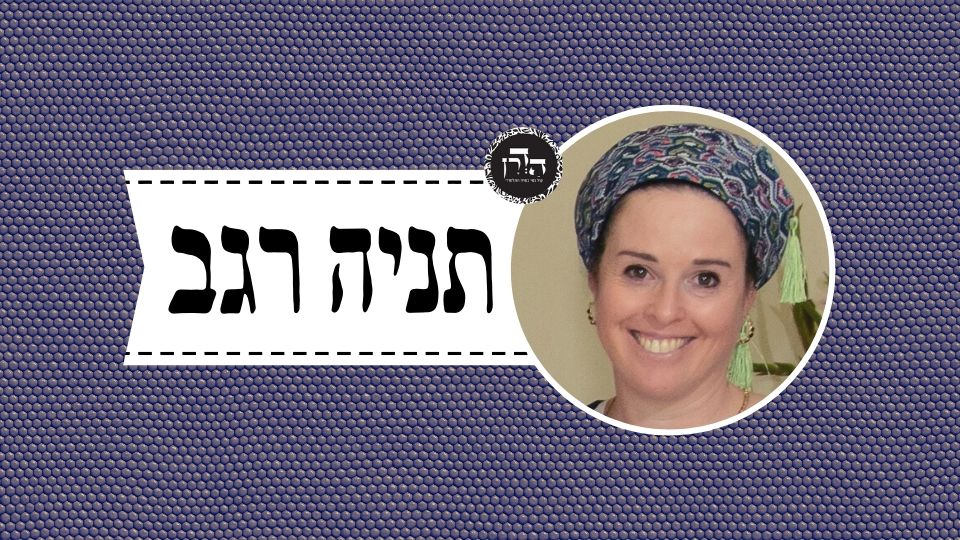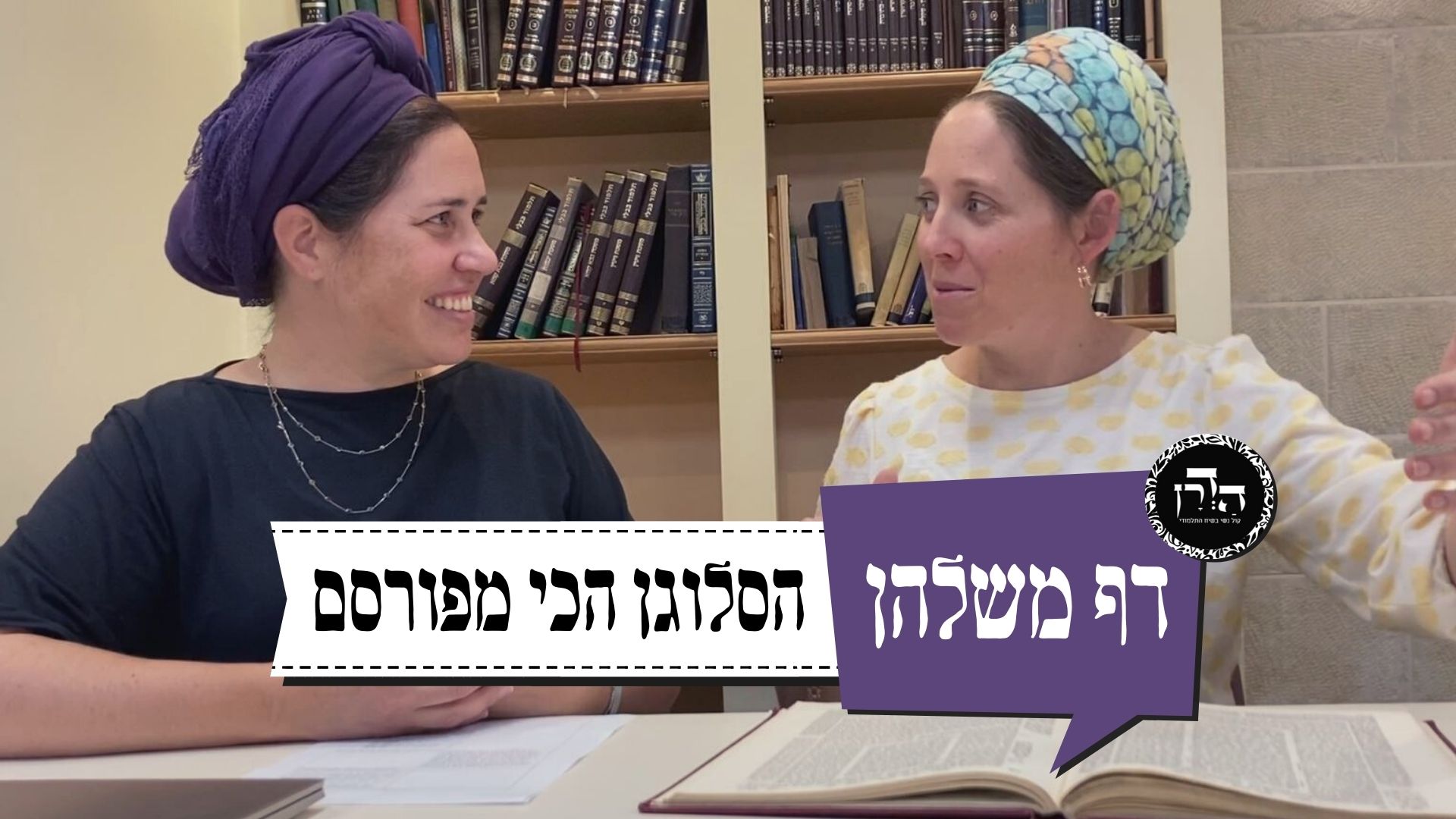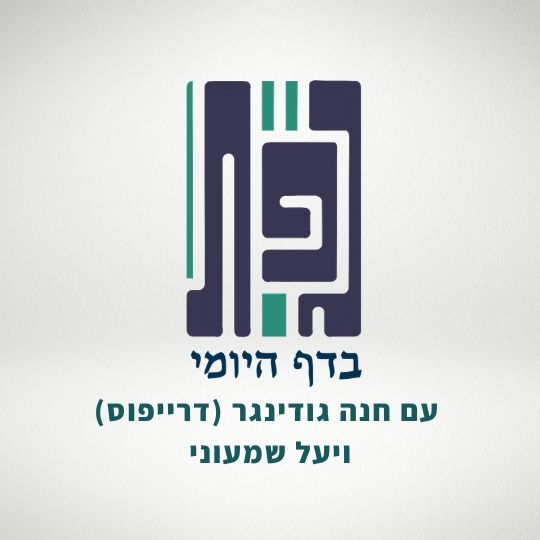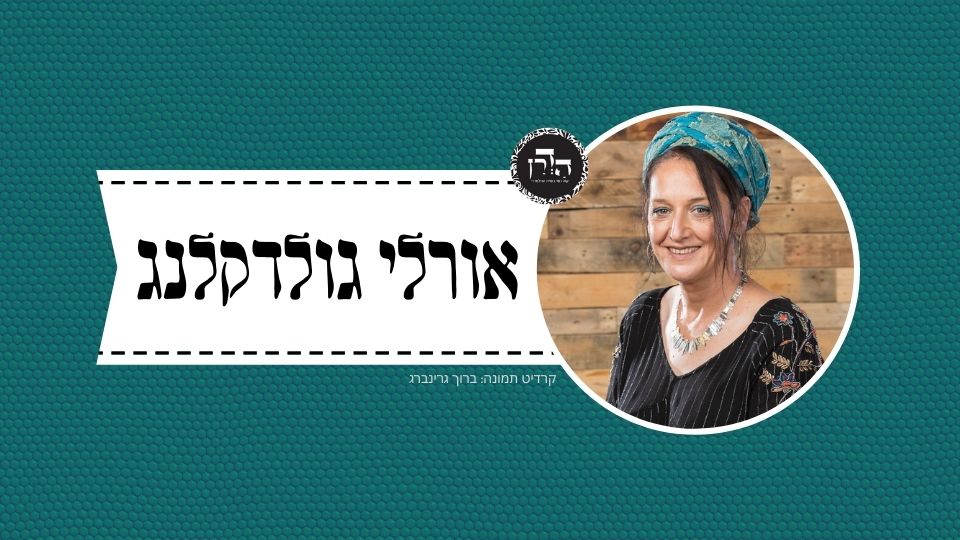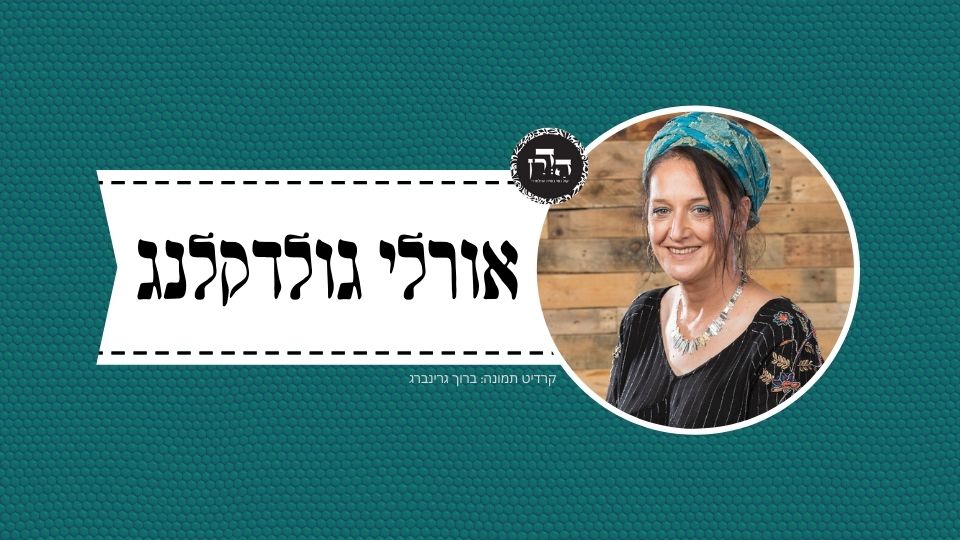יומא פה
וּשְׁמוּאֵל אָמַר לְפַקֵּחַ עָלָיו אֶת הַגַּל. כִּי אִיתְּמַר דִּשְׁמוּאֵל — אַרֵישָׁא אִיתְּמַר: אִם רוֹב גּוֹיִם — גּוֹי, אָמַר שְׁמוּאֵל: וּלְעִנְיַן פִּקּוּחַ נֶפֶשׁ אֵינוֹ כֵּן.
And Shmuel said: This halakha of the status of a found child is with regard to removing debris from on top of him, implying that if there is a majority of gentiles in the city where he is found, one does not violate Shabbat by removing the debris from the child to save his life. This implies that one does follow the majority in the case of saving a life. The Gemara answers: When this statement of Shmuel was stated, it was stated with regard to the first halakha. Shmuel’s intent was to be lenient, and his statement should be understood as follows: If the majority are gentiles, he is a gentile. Shmuel said: But with regard to the matter of saving a life it is not so. Rather, one saves him based on the uncertainty.
אִם רוֹב גּוֹיִם — גּוֹי, לְמַאי הִילְכְתָא? אָמַר רַב פָּפָּא: לְהַאֲכִילוֹ נְבֵלוֹת. אִם רוֹב יִשְׂרָאֵל — יִשְׂרָאֵל, לְמַאי הִילְכְתָא? לְהַחְזִיר לוֹ אֲבֵידָתוֹ.
§ It was taught that if there is a majority of gentiles in the city, a foundling is considered to have the status of a gentile. The Gemara asks: To what halakha does this statement relate? Rav Pappa said: It relates to feeding him non-kosher food. One need not protect the child from every prohibition and may even feed him non-kosher food, as though he were a gentile. It was further taught: If there is a majority of Jews, he is a Jew. The Gemara asks: To what halakha does this relate? The Gemara answers: It relates to returning a lost object to him. In such a case it is assumed that he is definitely a Jew. Consequently, Jews must return lost objects to him, whereas there is no obligation to return lost objects to gentiles.
מֶחֱצָה עַל מֶחֱצָה — יִשְׂרָאֵל, לְמַאי הִילְכְתָא? אָמַר רֵישׁ לָקִישׁ: לִנְזָקִין. הֵיכִי דָּמֵי? אִי נֵימָא דְּנַגְחֵיהּ תּוֹרָא דִּידַן לְתוֹרָא דִּידֵיהּ — נַיְיתֵי רְאָיָה וְנִשְׁקוֹל!
It was further stated: If the city is half gentile and half Jewish, the foundling has the status of a Jew. The Gemara asks: To what halakha does this relate? Reish Lakish said: It is referring to halakhot of damages. The Gemara asks: What are the circumstances? If we say that our ox, i.e., an ox belonging to another Jew, gored his ox, one could ask: How can he make a claim like a Jew? Let him bring proof that he is Jewish, and only then may he take the money for damages, since the burden of proof rests upon the claimant. Since he cannot prove his Jewish status, he has no claim.
לָא צְרִיכָא, דְּנַגְחֵיהּ תּוֹרָא דִּידֵיהּ לְתוֹרָא דִּידַן, פַּלְגָא — יָהֵיב לֵיהּ, אִידַּךְ פַּלְגָא — נֵימָא לֵיהּ: אַיְיתִי רְאָיָה דְּלָאו יִשְׂרָאֵל אֲנָא וּשְׁקוֹל.
The Gemara answers: No, it is necessary when his innocuous ox, which has gored fewer than three times, gored our ox, i.e., an ox belonging to a Jew, in which case he gives him half, which is what a Jew pays for damages caused by an innocuous ox. However, a gentile must make full restitution for the damage caused. The foundling does not pay the other half, which a gentile gives to a Jew if his ox harms a Jew’s ox. Let me say to the one who suffered the damage: Bring proof that I am not a Jew and take the money. In that case, the burden of proof rests upon the one who suffered the damage.
מִי שֶׁנָּפְלָה עָלָיו מַפּוֹלֶת וְכוּ׳. מַאי קָאָמַר?
§ It was taught in the mishna: With regard to one upon whom a rockslide fell, and there is uncertainty whether he is there under the debris or whether he is not there; and there is uncertainty whether he is still alive or whether he is dead; and there is uncertainty whether the person under the debris is a gentile or whether he is Jew, one clears the pile from atop him. The Gemara asks: What is the mishna saying? Why does it bring three different uncertainties to illustrate the principle that one violates Shabbat to save a life even in a case of uncertainty?
לָא מִיבַּעְיָא קָאָמַר: לָא מִיבַּעְיָא סָפֵק הוּא שָׁם סָפֵק אֵינוֹ שָׁם, דְּאִי אִיתֵיהּ חַי — הוּא דִּמְפַקְּחִין, אֶלָּא אֲפִילּוּ סָפֵק חַי סָפֵק מֵת — מְפַקְּחִין. וְלָא מִיבַּעְיָא סָפֵק חַי סָפֵק מֵת, דְּיִשְׂרָאֵל, אֶלָּא אֲפִילּוּ סָפֵק גּוֹי סָפֵק יִשְׂרָאֵל — מְפַקְּחִין.
The Gemara explains: It is speaking using the style of: Needless to say, and the mishna should be understood as follows: Needless to say, in a case where it is uncertain whether he is there or not there, one removes the debris, since if he is there and he is alive, one must clear the debris. But even if it is uncertain whether he is alive or dead, one must clear the debris. And needless to say, when there is uncertainty whether he is alive or dead, but it is certain that he is a Jew, one must clear the debris. Rather, one must clear the debris even if there is uncertainty whether he is a gentile or a Jew.
מְצָאוּהוּ חַי — מְפַקְּחִין. מְצָאוּהוּ חַי, פְּשִׁיטָא! לָא צְרִיכָא, דַּאֲפִילּוּ לְחַיֵּי שָׁעָה.
§ The mishna taught: If they found him alive, they continue to remove the debris. The Gemara is surprised at this: If they find him alive, it is obvious that they remove the debris, since that is saving a life. The Gemara answers: No, it is necessary to teach that one must desecrate Shabbat for his sake even if it is clear that he will live only a short while and will die soon after.
וְאִם מֵת יַנִּיחוּהוּ. הָא נָמֵי פְּשִׁיטָא? לָא צְרִיכָא, לְרַבִּי יְהוּדָה בֶּן לָקִישׁ. דְּתַנְיָא: אֵין מַצִּילִין אֶת הַמֵּת מִפְּנֵי הַדְּלֵיקָה, אָמַר רַבִּי יְהוּדָה בֶּן לָקִישׁ: שָׁמַעְתִּי שֶׁמַּצִּילִין אֶת הַמֵּת מִפְּנֵי הַדְּלֵיקָה. וַאֲפִילּוּ רַבִּי יְהוּדָה בֶּן לָקִישׁ לָא קָאָמַר אֶלָּא מִתּוֹךְ שֶׁאָדָם בָּהוּל עַל מֵתוֹ, אִי לָא שָׁרֵית לֵיהּ — אָתֵי לְכַבּוֹיֵי. אֲבָל הָכָא, אִי לָא שָׁרֵית לֵיהּ — מַאי אִית לֵיהּ לְמֶעְבַּד?
§ The mishna taught: If they found him dead, they should leave him. The Gemara is surprised at this: Isn’t this also obvious? What allowance might there be to desecrate Shabbat for the sake of a corpse? The Gemara answers: No, this ruling is necessary according to the opinion of Rabbi Yehuda ben Lakish, as it was taught in a baraita: One may not save a corpse from a fire, since one may not violate Shabbat for the sake of the dead. Rabbi Yehuda ben Lakish said: I heard that one may save a corpse from a fire. The Gemara challenges: Even Rabbi Yehuda ben Lakish said this only with regard to a fire because a person is agitated over his dead relative, whose body might burn in the fire. If you do not permit him to remove the corpse he may come to extinguish the fire and transgress a severe Torah prohibition. However, here, in the case of a rockslide or building collapse, if you do not permit him to remove the debris, what might he do? In this case, there is no concern of Shabbat desecration, and preserving the dignity of the dead does not override Shabbat.
תָּנוּ רַבָּנַן: עַד הֵיכָן הוּא בּוֹדֵק? עַד חוֹטְמוֹ. וְיֵשׁ אוֹמְרִים: עַד לִבּוֹ. בָּדַק וּמָצָא עֶלְיוֹנִים מֵתִים, לֹא יֹאמַר: כְּבָר מֵתוּ הַתַּחְתּוֹנִים. מַעֲשֶׂה הָיָה וּמָצְאוּ עֶלְיוֹנִים מֵתִים וְתַחְתּוֹנִים חַיִּים.
The Rabbis taught: If a person is buried under a collapsed building, until what point does one check to clarify whether the victim is still alive? Until what point is he allowed to continue clearing the debris? They said: One clears until the victim’s nose. If there is no sign of life, i.e., if he is not breathing, he is certainly dead. And some say: One clears until the victim’s heart to check for a heartbeat. If several people are buried and one checked and found the upper ones under the debris dead, he should not say: The lower ones are likely also already dead, and there is no point in continuing to search. There was an incident where they found the upper ones dead and the lower ones alive.
נֵימָא הָנֵי תַּנָּאֵי כִּי הָנֵי תַּנָּאֵי. דְּתַנְיָא: מֵהֵיכָן הַוָּלָד נוֹצָר — מֵרֹאשׁוֹ, שֶׁנֶּאֱמַר: ״מִמְּעֵי אִמִּי אַתָּה גוֹזִי״, וְאוֹמֵר: ״גׇּזִּי נִזְרֵךְ וְהַשְׁלִיכִי״. אַבָּא שָׁאוּל אוֹמֵר: מִטִּיבּוּרוֹ, וּמְשַׁלֵּחַ שׇׁרָשָׁיו אֵילָךְ וְאֵילָךְ.
The Gemara comments: Let us say that the dispute between these tanna’im who disagree about checking for signs of life is like the dispute between these tanna’im who disagree about the formation of the fetus. As it was taught in a baraita: From what point is the fetus created? It is from its head, as it is stated: “You are He Who took me [gozi] out of my mother’s womb” (Psalms 71:6), and it says: “Cut off [gozi] your hair, and cast it away” (Jeremiah 7:29). These verses suggest that one is created from the head, the place of the hair. Abba Shaul says: A person is created from his navel, and he sends his roots in every direction until he attains the image of a person. The tanna who says that the presence of life is determined based on the nose holds in accordance with the opinion of the tanna who maintains that the formation of a fetus begins with its head. Likewise, the tanna who says the presence of life is determined based on the heart holds in accordance with the opinion of the one who thinks the formation of a fetus begins with its navel.
אֲפִילּוּ תֵּימָא אַבָּא שָׁאוּל, עַד כָּאן לָא קָא אָמַר אַבָּא שָׁאוּל הָתָם אֶלָּא לְעִנְיַן יְצִירָה, דְּכֹל מִידֵּי מִמְּצִיעֲתֵיהּ מִיתְּצַר, אֲבָל לְעִנְיַן פִּקּוּחַ נֶפֶשׁ — אֲפִילּוּ אַבָּא שָׁאוּל מוֹדֵי דְּעִיקַּר חַיּוּתָא בְּאַפֵּיהּ הוּא, דִּכְתִיב: ״כׇּל אֲשֶׁר נִשְׁמַת רוּחַ חַיִּים בְּאַפָּיו״.
The Gemara rejects this: Even if you say that the formation of a fetus from the navel is the opinion of Abba Shaul, he may nevertheless require one to check the nose for signs of life. Until now, Abba Shaul spoke there only about formation, saying that everything is created from its middle; however, as for saving a life, even Abba Shaul admits that the main sign of life is in the nose, as it is written: “All in whose nostrils was the breath of the spirit of life” (Genesis 7:22).
אָמַר רַב פָּפָּא: מַחְלוֹקֶת מִמַּטָּה לְמַעְלָה, אֲבָל מִמַּעְלָה לְמַטָּה, כֵּיוָן דִּבְדַק לֵיהּ עַד חוֹטְמוֹ — שׁוּב אֵינוֹ צָרִיךְ, דִּכְתִיב: ״כֹּל אֲשֶׁר נִשְׁמַת רוּחַ חַיִּים בְּאַפָּיו״.
Rav Pappa said: The dispute with regard to how far to check for signs of life applies when the digger begins removing the rubble from below, starting with the feet, to above. In such a case it is insufficient to check until his heart; rather, one must continue removing rubble until he is able to check his nose for breath. But if one cleared the rubble from above to below, once he checked as far as the victim’s nose he is not required to check further, as it is written: “All in whose nostrils was the breath of the spirit of life” (Genesis 7:22).
וּכְבָר הָיָה רַבִּי יִשְׁמָעֵאל וְרַבִּי עֲקִיבָא וְרַבִּי אֶלְעָזָר בֶּן עֲזַרְיָה מְהַלְּכִין בַּדֶּרֶךְ, וְלֵוִי הַסַּדָּר וְרַבִּי יִשְׁמָעֵאל בְּנוֹ שֶׁל רַבִּי אֶלְעָזָר בֶּן עֲזַרְיָה מְהַלְּכִין אַחֲרֵיהֶן. נִשְׁאֲלָה שְׁאֵלָה זוֹ בִּפְנֵיהֶם: מִנַּיִין לְפִקּוּחַ נֶפֶשׁ שֶׁדּוֹחֶה אֶת הַשַּׁבָּת?
§ The Gemara relates: It once happened that Rabbi Yishmael, and Rabbi Akiva, and Rabbi Elazar ben Azarya were walking on the road, and Levi HaSadar and Rabbi Yishmael, son of Rabbi Elazar ben Azarya, were walking respectfully behind them, since they were younger and did not walk alongside their teachers. This question was asked before them: From where is it derived that saving a life overrides Shabbat?
נַעֲנָה רַבִּי יִשְׁמָעֵאל וְאָמַר: ״אִם בַּמַּחְתֶּרֶת יִמָּצֵא הַגַּנָּב״ — וּמָה זֶה, שֶׁסָּפֵק עַל מָמוֹן בָּא סָפֵק עַל נְפָשׁוֹת בָּא, וּשְׁפִיכוּת דָּמִים מְטַמֵּא אֶת הָאָרֶץ, וְגוֹרֵם לַשְּׁכִינָה שֶׁתִּסְתַּלֵּק מִיִּשְׂרָאֵל, נִיתָּן לְהַצִּילוֹ בְּנַפְשׁוֹ — קַל וָחוֹמֶר לְפִקּוּחַ נֶפֶשׁ שֶׁדּוֹחֶה אֶת הַשַּׁבָּת.
Rabbi Yishmael answered and said that it is stated: “If a thief be found breaking in and be struck so that he dies, there shall be no blood-guiltiness for him” (Exodus 22:1). Now, if this is true for the thief, where there is uncertainty whether he comes to take money or to take lives, and it is known that bloodshed renders the land impure, since it is stated about a murderer: “And you shall not defile the land” (Numbers 35:34), and it causes the Divine Presence to depart from the Jewish people, as the verse continues: “In the midst of which I dwell, for I the Lord dwell in the midst of the children of Israel” (Numbers 35:34), and even so the home owner is permitted to save himself at the cost of the thief’s life, then a fortiori saving a life overrides Shabbat.
נַעֲנָה רַבִּי עֲקִיבָא וְאָמַר: ״וְכִי יָזִיד אִישׁ עַל רֵעֵהוּ וְגוֹ׳ מֵעִם מִזְבְּחִי תִּקָּחֶנּוּ לָמוּת״. ״מֵעִם מִזְבְּחִי״ — וְלֹא מֵעַל מִזְבְּחִי. וְאָמַר רַבָּה בַּר בַּר חָנָה אָמַר רַבִּי יוֹחָנָן: לֹא שָׁנוּ אֶלָּא לְהָמִית,
Rabbi Akiva answered and said that it is stated: “And if a man comes purposefully upon his neighbor to slay him with guile, you shall take him from My altar, that he may die” (Exodus 21:14). The phrase “take him from My altar” implies that if the murderer is a priest and comes to perform the service, one does not wait for him to do so but takes him to his execution immediately. But one should not take him from on top of My altar. If he already began the service and is in the midst of it, one does not take him down from the altar immediately but instead allows him to finish his service. And Rabba bar bar Ḥana said that Rabbi Yoḥanan said: They taught only that a priest is not removed from the altar in order to execute him for murder,
אֲבָל לְהַחֲיוֹת — אֲפִילּוּ מֵעַל מִזְבְּחִי. וּמָה זֶה, שֶׁסָּפֵק יֵשׁ מַמָּשׁ בִּדְבָרָיו סָפֵק אֵין מַמָּשׁ בִּדְבָרָיו, וַעֲבוֹדָה דּוֹחָה שַׁבָּת — קַל וָחוֹמֶר לְפִקּוּחַ נֶפֶשׁ שֶׁדּוֹחֶה אֶת הַשַּׁבָּת. נַעֲנָה רַבִּי אֶלְעָזָר וְאָמַר: וּמָה מִילָה שֶׁהִיא אֶחָד מִמָּאתַיִם וְאַרְבָּעִים וּשְׁמוֹנָה אֵיבָרִים שֶׁבָּאָדָם דּוֹחָה אֶת הַשַּׁבָּת — קַל וָחוֹמֶר לְכׇל גּוּפוֹ שֶׁדּוֹחֶה אֶת הַשַּׁבָּת.
but to preserve a life, e.g., if the priest can testify to the innocence of one who is sentenced to death, one removes him even from on top of My altar, even while he is sacrificing an offering. Just as this priest, about whom there is uncertainty whether there is substance to his words of testimony or whether there is no substance to his words, is taken from the Temple service in order to save a life, and Temple service overrides Shabbat, so too, a fortiori, saving a life overrides Shabbat. Rabbi Elazar ben Azarya answered and said: Just as the mitzva of circumcision, which rectifies only one of the 248 limbs of the body, overrides Shabbat, so too, a fortiori, saving one’s whole body, which is entirely involved in mitzvot, overrides Shabbat.
רַבִּי יוֹסֵי בְּרַבִּי יְהוּדָה אוֹמֵר: ״אֶת שַׁבְּתוֹתַי תִּשְׁמוֹרוּ״, יָכוֹל לַכֹּל — תַּלְמוּד לוֹמַר: ״אַךְ״ חָלַק. רַבִּי יוֹנָתָן בֶּן יוֹסֵף אוֹמֵר: ״כִּי קוֹדֶשׁ הִיא לָכֶם״, הִיא מְסוּרָה בְּיֶדְכֶם וְלֹא אַתֶּם מְסוּרִים בְּיָדָהּ.
Other tanna’im debated this same issue. Rabbi Yosei, son of Rabbi Yehuda, says that it is stated: “But keep my Shabbatot” (Exodus 31:13). One might have thought that this applies to everyone in all circumstances; therefore, the verse states “but,” a term that restricts and qualifies. It implies that there are circumstances where one must keep Shabbat and circumstances where one must desecrate it, i.e., to save a life. Rabbi Yonatan ben Yosef says that it is stated: “For it is sacred to you” (Exodus 31:14). This implies that Shabbat is given into your hands, and you are not given to it to die on account of Shabbat.
רַבִּי שִׁמְעוֹן בֶּן מְנַסְיָא אוֹמֵר: ״וְשָׁמְרוּ בְנֵי יִשְׂרָאֵל אֶת הַשַּׁבָּת״, אָמְרָה תּוֹרָה: חַלֵּל עָלָיו שַׁבָּת אַחַת כְּדֵי שֶׁיִּשְׁמוֹר שַׁבָּתוֹת הַרְבֵּה. אָמַר רַב יְהוּדָה אָמַר שְׁמוּאֵל: אִי הֲוַאי הָתָם, הֲוָה אָמֵינָא דִּידִי עֲדִיפָא מִדִּידְהוּ: ״וְחַי בָּהֶם״ — וְלֹא שֶׁיָּמוּת בָּהֶם.
Rabbi Shimon ben Menasya said: It is stated: “And the children of Israel shall keep Shabbat, to observe Shabbat” (Exodus 31:16). The Torah said: Desecrate one Shabbat on his behalf so he will observe many Shabbatot. Rav Yehuda said that Shmuel said: If I would have been there among those Sages who debated this question, I would have said that my proof is preferable to theirs, as it states: “You shall keep My statutes and My ordinances, which a person shall do and live by them” (Leviticus 18:5), and not that he should die by them. In all circumstances, one must take care not to die as a result of fulfilling the mitzvot.
אָמַר רָבָא: לְכוּלְּהוּ אִית לְהוּ פִּירְכָא, בַּר מִדִּשְׁמוּאֵל דְּלֵית לֵיהּ פִּירְכָא. דְּרַבִּי יִשְׁמָעֵאל — דִּילְמָא כִּדְרָבָא. דְּאָמַר רָבָא: מַאי טַעְמָא דְּמַחְתֶּרֶת? חֲזָקָה, אֵין אָדָם מַעֲמִיד עַצְמוֹ עַל מָמוֹנוֹ. וְהַאי מִידָּע יָדַע דְּקָאֵי לְאַפֵּיהּ, וְאָמַר אִי קָאֵי לְאַפַּאי — קָטֵילְנָא לֵיהּ, וְהַתּוֹרָה אָמְרָה: בָּא לְהׇרְגְּךָ — הַשְׁכֵּם לְהׇרְגוֹ. וְאַשְׁכְּחַן וַדַּאי, סָפֵק מְנָלַן?
Rava commented on this: All of these arguments have refutations except for that of Shmuel, which has no refutation. The Gemara explains Rava’s claim: The proof brought by Rabbi Yishmael from the thief who breaks in could perhaps be refuted based on the principle of Rava, as Rava said: What is the reason for the halakha about the thief who breaks in? There is a presumption that while a person is being robbed he does not restrain himself with respect to his money. And this thief knows that the homeowner will rise to oppose him and said to himself from the start: If he rises against me, I will kill him. And the Torah states: If a person comes to kill you, rise to kill him first. We found a source for saving a life that is in certain danger, but from where do we derive that even in a case where there is uncertainty as to whether a life is in danger one may desecrate Shabbat? Consequently, Rabbi Yishmael’s argument is refuted.
דְּרַבִּי עֲקִיבָא נָמֵי — דִּילְמָא כִּדְאַבָּיֵי. דְּאָמַר אַבָּיֵי: מָסְרִינַן לֵיהּ זוּגָא דְרַבָּנַן לֵידַע אִם מַמָּשׁ בִּדְבָרָיו. וְאַשְׁכְּחַן וַדַּאי, סָפֵק מְנָא לַן?
The proof of Rabbi Akiva can also be refuted. He brought the case of removing a priest from altar service in order to have him testify on another’s behalf, since his testimony might acquit the accused and save him from execution. But perhaps that halakha is in accordance with the opinion of Abaye, as Abaye said: If the accused says he has a witness in his favor, we send a pair of rabbis on his behalf to determine if his words of testimony have substance. These rabbis would first check that the testimony of the priest is substantive before removing him from the altar. If so, we have found that one interrupts the Temple service to save a life from certain danger, but from where do we derive that one interrupts the Temple service when the likelihood of saving life is uncertain?
וְכוּלְּהוּ אַשְׁכְּחַן וַדַּאי, סָפֵק מְנָא לַן? וְדִשְׁמוּאֵל, וַדַּאי לֵית לֵיהּ פִּירְכָא. אָמַר רָבִינָא וְאִיתֵּימָא רַב נַחְמָן בַּר יִצְחָק: טָבָא חֲדָא פִּלְפַּלְתָּא חֲרִיפָא מִמְּלָא צַנָּא דְקָרֵי.
And for all the other arguments as well, we have found proofs for saving a life from certain danger. But for cases of uncertainty, from where do we derive this? For this reason, all the arguments are refuted. However, the proof that Shmuel brought from the verse: “And live by them,” which teaches that one should not even put a life in possible danger to observe mitzvot, there is certainly no refutation. Ravina said, and some say it was Rav Naḥman bar Yitzḥak who said with regard to this superior proof of Shmuel: One spicy pepper is better than a whole basket of squash, since its flavor is more powerful than all the others.
מַתְנִי׳ חַטָּאת וְאָשָׁם וַדַּאי — מְכַפְּרִין. מִיתָה וְיוֹם הַכִּפּוּרִים — מְכַפְּרִין עִם הַתְּשׁוּבָה. תְּשׁוּבָה — מְכַפֶּרֶת עַל עֲבֵירוֹת קַלּוֹת: עַל עֲשֵׂה, וְעַל לֹא תַעֲשֶׂה. וְעַל הַחֲמוּרוֹת הוּא תּוֹלֶה, עַד שֶׁיָּבֹא יוֹם הַכִּפּוּרִים וִיכַפֵּר. הָאוֹמֵר: אֶחֱטָא וְאָשׁוּב, אֶחֱטָא וְאָשׁוּב — אֵין מַסְפִּיקִין בְּיָדוֹ לַעֲשׂוֹת תְּשׁוּבָה. אֶחֱטָא וְיוֹם הַכִּפּוּרִים מְכַפֵּר — אֵין יוֹם הַכִּפּוּרִים מְכַפֵּר. עֲבֵירוֹת שֶׁבֵּין אָדָם לַמָּקוֹם — יוֹם הַכִּפּוּרִים מְכַפֵּר, עֲבֵירוֹת שֶׁבֵּין אָדָם לַחֲבֵירוֹ — אֵין יוֹם הַכִּפּוּרִים מְכַפֵּר, עַד שֶׁיְּרַצֶּה אֶת חֲבֵירוֹ.
MISHNA: A sin-offering, which atones for unwitting performance of transgressions punishable by karet, and a definite guilt-offering, which is brought for robbery and misuse of consecrated items, atone for those sins. Death and Yom Kippur atone for sins when accompanied by repentance. Repentance itself atones for minor transgressions, for both positive mitzvot and negative mitzvot. And repentance places punishment for severe transgressions in abeyance until Yom Kippur comes and completely atones for the transgression. With regard to one who says: I will sin and then I will repent, I will sin and I will repent, Heaven does not provide him the opportunity to repent, and he will remain a sinner all his days. With regard to one who says: I will sin and Yom Kippur will atone for my sins, Yom Kippur does not atone for his sins. Furthermore, for transgressions between a person and God, Yom Kippur atones; however, for transgressions between a person and another, Yom Kippur does not atone until he appeases the other person.
דָּרַשׁ רַבִּי אֶלְעָזָר בֶּן עֲזַרְיָה: ״מִכֹּל חַטֹּאתֵיכֶם לִפְנֵי ה׳ תִּטְהָרוּ״. עֲבֵירוֹת שֶׁבֵּין אָדָם לַמָּקוֹם — יוֹם הַכִּפּוּרִים מְכַפֵּר. עֲבֵירוֹת שֶׁבֵּין אָדָם לַחֲבֵירוֹ — אֵין יוֹם הַכִּפּוּרִים מְכַפֵּר עַד שֶׁיְּרַצֶּה אֶת חֲבֵירוֹ. אָמַר רַבִּי עֲקִיבָא: אַשְׁרֵיכֶם יִשְׂרָאֵל! לִפְנֵי מִי אַתֶּם מִטַּהֲרִין, מִי מְטַהֵר אֶתְכֶם? אֲבִיכֶם שֶׁבַּשָּׁמַיִם, שֶׁנֶּאֱמַר: ״וְזָרַקְתִּי עֲלֵיכֶם מַיִם טְהוֹרִים וּטְהַרְתֶּם״, וְאוֹמֵר: ״מִקְוֵה יִשְׂרָאֵל (ה׳)״, מָה מִקְוֶה מְטַהֵר אֶת הַטְּמֵאִים — אַף הַקָּדוֹשׁ בָּרוּךְ הוּא מְטַהֵר אֶת יִשְׂרָאֵל.
Similarly, Rabbi Elazar ben Azarya taught that point from the verse: “From all your sins you shall be cleansed before the Lord” (Leviticus 16:30). For transgressions between a person and God, Yom Kippur atones; however, for transgressions between a person and another, Yom Kippur does not atone until he appeases the other person. In conclusion, Rabbi Akiva said: How fortunate are you, Israel; before Whom are you purified, and Who purifies you? It is your Father in Heaven, as it is stated: “And I will sprinkle purifying water upon you, and you shall be purified” (Ezekiel 36:25). And it says: “The ritual bath of Israel is God” (Jeremiah 17:13). Just as a ritual bath purifies the impure, so too, the Holy One, Blessed be He, purifies Israel.
גְּמָ׳ אָשָׁם וַדַּאי — אִין, אָשָׁם תָּלוּי — לָא. וְהָא כַּפָּרָה כְּתִיבָא בֵּיהּ? הָנָךְ מְכַפְּרִי כַּפָּרָה גְּמוּרָה, אָשָׁם תָּלוּי אֵינוֹ מְכַפֵּר כַּפָּרָה גְּמוּרָה.
GEMARA: The mishna says that a definite guilt-offering atones for sins. The Gemara analyzes this: With regard to a definite guilt-offering, yes, it does atone for sins. This implies that an uncertain guilt-offering does not. The Gemara asks: But isn’t atonement written with regard to it? Why, then, doesn’t it atone? The Gemara answers: Those, the sin-offerings and definite guilt-offerings, facilitate complete atonement, but an uncertain guilt-offering does not facilitate complete atonement. Instead, this offering provides temporary atonement for an individual, to protect him from punishment until he becomes aware of his sin and brings the appropriate offering.
אִי נָמֵי: הָנָךְ אֵין אַחֵר מְכַפֵּר כַּפָּרָתָן, אָשָׁם תָּלוּי אַחֵר מְכַפֵּר כַּפָּרָתָן, דִּתְנַן: חַיָּיבֵי חַטָּאוֹת וַאֲשָׁמוֹת וַדָּאִין שֶׁעָבַר עֲלֵיהֶן יוֹם הַכִּפּוּרִים — חַיָּיבִין, אֲשָׁמוֹת תְּלוּיִן — פְּטוּרִין.
Alternatively, there is this distinction: Nothing else facilitates the atonement of those sin-offerings and definite guilt-offerings, whereas something else does facilitate the atonement of the uncertain guilt-offering, as we learned in a mishna: If Yom Kippur passed, those who are obligated to bring sin-offerings and definite guilt-offerings are still obligated to bring their offerings; however, those obligated to bring uncertain guilt-offerings are exempt because Yom Kippur atoned for them.
מִיתָה וְיוֹם הַכִּפּוּרִים מְכַפְּרִין עִם הַתְּשׁוּבָה. עִם הַתְּשׁוּבָה — אִין, בִּפְנֵי עַצְמָן — לָא. נֵימָא דְּלָא כְּרַבִּי. דְּתַנְיָא, רַבִּי אוֹמֵר: עַל כׇּל עֲבֵירוֹת שֶׁבַּתּוֹרָה, בֵּין עָשָׂה תְּשׁוּבָה בֵּין לֹא עָשָׂה תְּשׁוּבָה — יוֹם הַכִּפּוּרִים מְכַפֵּר, חוּץ (מִפּוֹרֵק עוֹל), וּמְגַלֶּה פָּנִים בַּתּוֹרָה, וּמֵיפֵר בְּרִית בָּשָׂר, שֶׁאִם עָשָׂה תְּשׁוּבָה — יוֹם הַכִּפּוּרִים מְכַפֵּר, וְאִם לֹא עָשָׂה תְּשׁוּבָה — אֵין יוֹם הַכִּפּוּרִים מְכַפֵּר.
§ It was taught in the mishna that death and Yom Kippur atone for sins when accompanied by repentance. The Gemara analyzes this: With repentance, yes, they do atone for sins; but by themselves, without repentance, they do not. Let us say that the mishna is not in accordance with the opinion of Rabbi Yehuda HaNasi, as it was taught in a baraita: Rabbi Yehuda HaNasi says that for all transgressions in the Torah, whether one repented or did not repent, Yom Kippur atones, with the exception of rejecting the yoke of Torah and mitzvot; and denying the Holy One, Blessed be He; and interpreting the Torah falsely; and violating the covenant of the flesh, i.e., circumcision. In these cases, if one repents Yom Kippur atones for his sin, and if one does not repent Yom Kippur does not atone for his sin.
אֲפִילּוּ תֵּימָא רַבִּי: תְּשׁוּבָה בָּעֲיָא יוֹם הַכִּפּוּרִים, יוֹם הַכִּפּוּרִים לָא בָּעֲיָא תְּשׁוּבָה.
The Gemara rejects this: This is no proof; even if you say that the mishna is in accordance with the opinion of Rabbi Yehuda HaNasi, the mishna can be understood as follows: Repentance still requires Yom Kippur in order to complete the atonement, whereas Yom Kippur does not require repentance but atones even without it.
תְּשׁוּבָה מְכַפֶּרֶת עַל עֲבֵירוֹת קַלּוֹת: עַל עֲשֵׂה וְעַל לֹא תַעֲשֶׂה. הַשְׁתָּא עַל לֹא תַעֲשֶׂה מְכַפֶּרֶת, עַל עֲשֵׂה מִיבַּעְיָא? אָמַר רַב יְהוּדָה, הָכִי קָאָמַר: עַל עֲשֵׂה, וְעַל לֹא תַעֲשֶׂה שֶׁנִּיתַּק לַעֲשֵׂה.
§ It was taught in the mishna: Repentance itself atones for minor transgressions, for both a positive mitzva and for a negative mitzva. The Gemara is surprised at this: Now that it was stated that repentance atones for a negative mitzva, which is severe and warrants lashes, is it necessary to also teach that it atones for a positive mitzva, which is more lenient? Rav Yehuda said: This is what it said, i.e., the mishna should be understood as follows: Repentance atones for a positive mitzva and for a negative mitzva whose violation can be rectified by a positive mitzva. One is not punished by a court for violating a prohibition for which the Torah prescribes a positive act as a corrective measure and which thereby has the same halakha as a positive mitzva.
וְעַל לֹא תַעֲשֶׂה גָּמוּר לָא? וּרְמִינְהוּ, אֵלּוּ הֵן קַלּוֹת: עֲשֵׂה וְלֹא תַעֲשֶׂה,
The Gemara asks: But does repentance not atone for a full-fledged negative mitzva? The Gemara raises a contradiction from a separate source: It was taught that these are minor transgressions: A positive mitzva and a negative mitzva,

